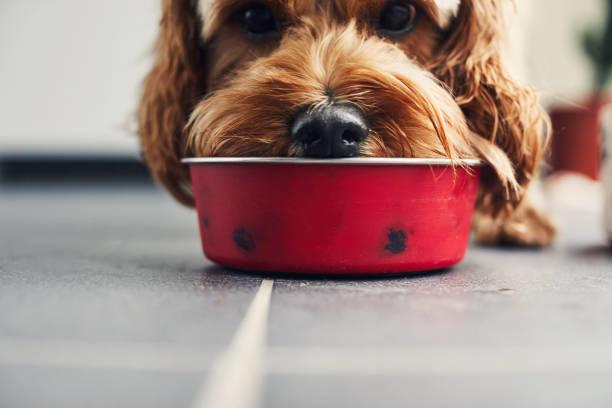COMMON CHRISTMAS FOOD HAZARDS FOR DOGS

Christmas is a time of year that’s filled with lots of delicious food items. From the iconic Christmas dinner to pudding, chocolate treats, cheese, sweets and many more there’s no shortage of food at Christmas time. You may have wondered can your dog eat some of these treats. The short answer is yes, but there are also lots of Christmas food hazards that you need to be aware of as a dog owner as these could make your pooch unwell. We’ll discuss the biggest things to avoid for your dog this Christmas.
CHRISTMAS FOOD HAZARDS FOR DOGS
Christmas time is an exciting time for us but it can be a dangerous time for our dogs. There are many dangerous food items that are popular at Christmas and can cause our dogs to become seriously unwell or even prove fatal.
Here are the top foods to keep out of your dog’s reach this Christmas;
CHOCOLATE
The top one on our list is chocolate. Chocolate is everywhere at Christmas, from chocolate cakes to chocolate sweets there’s an abundance of it. It contains a toxin called Theobromine which can cause severe poisoning in dogs. The darker the chocolate the worse the poisoning is likely to be. Symptoms of chocolate poisoning include; vomiting, diarrhoea, increased drinking, fast heart rate, seizures and tremors depending on the amount eaten. Check out this handy chocolate poisoning calculator to check if your dog has eaten a dangerous amount. Don’t be tempted to feed your dog any chocolate at Christmas, no matter how big your dog is or how small the piece of chocolate is.
RAISINS/GRAPES
Raisins and grapes are healthy for us but can be deadly to our dogs. They can cause severe poisoning resulting in acute kidney failure which can be fatal. Raisins are used in Christmas puddings, mince pies and Christmas cake so keep these common festive foods out of your pet’s reach.
MACADAMIA NUTS
A regular table snack, macadamia nuts can be toxic to dogs if a certain amount is ingested. Symptoms can occur within 12 hours and include weakness, tremors, ataxia (uncoordinated walking), vomiting and hyperthermia.
SWEETS
Sweets are a big no-no for dogs. They contain a lot of preservatives and chemicals which can be harmful to dogs, along with an artificial sweetener called Xylitol. Xylitol can cause severe hypoglycaemia (low blood sugar) in dogs which can be fatal. Along with that, dogs often ingest the sweet with the wrapper which could potentially cause an intestinal blockage.
ONIONS
Onions along with other members of the allium family such as garlic, chive and leek are poisonous to dogs. Ingesting them over time or in large amounts can cause damage to red blood cells which results in anaemia. This can prove fatal in some cases. Onions are included in many dishes along with the Christmas dinner gravy so great care needs to be taken to avoid feeding this to your dog.
BONES
Christmas dinners often include turkey meat along with ham, beef or other meats depending on your traditions. Cooked bones from these meats can pose a serious threat to our dogs. Bones can splinter in the gastrointestinal tract causing damage and potentially causing a blockage or rupture which needs urgent veterinary care. Make sure that bones get disposed of safely and are out of your dog’s reach.
FATTY MEAT
Fatty cuts of meat and skin are often leftover on plates and it may be tempting to feed these to your dog instead of putting them in the bin. However, these can cause upset tummies in dogs and even in extreme cases, cause bouts of pancreatitis. Pancreatitis is inflammation of the pancreas which is a painful, serious condition and can be caused by feeding fatty foods.
ALCOHOL
It goes without saying, that any amount of alcohol is very harmful to dogs. Alcohol can cause alcohol toxicity as it contains the intoxicating agent ethanol. Symptoms include vomiting, weakness, collapse and drooling.
WHAT TO DO IF YOUR DOG EATS SOMETHING HARMFUL
If your dog has eaten one of the above substances, contact your veterinarian as soon as possible. Time is of the essence with any sort of poisoning or toxicity. If it has occurred in the last 1-2 hours your vet will likely make your dog get sick to bring up the harmful substance (with the exception of bones).
They may give your dog activated charcoal to bind the toxins and place them on an intravenous drip. Some cases of toxicity may need additional treatment such as seizure medication.
WHAT CAN YOU FEED YOUR DOG AT CHRISTMAS?
We’ve discussed things that your dog can’t eat at Christmas, but what about things that are safe to eat? While we don’t recommend changing your dog’s diet or feeding too many treats as it can cause an upset tummy, a little treat at Christmas is ok.
If you wish to feed your dog a little treat, choose very lean cuts of meat and avoid salty meats such as pork. Try feeding them some boiled or steamed vegetables such as broccoli or carrots. Avoid all sauces and gravy.
CONCLUSION
Christmas is a fun time of year for us and our dogs. Beware of common Christmas dangers including chocolate, raisins, sweets, bones and fatty meats which can cause poisoning in dogs. Keep Christmas safe for both you and your pooch!
By Aisling O’Keeffe

